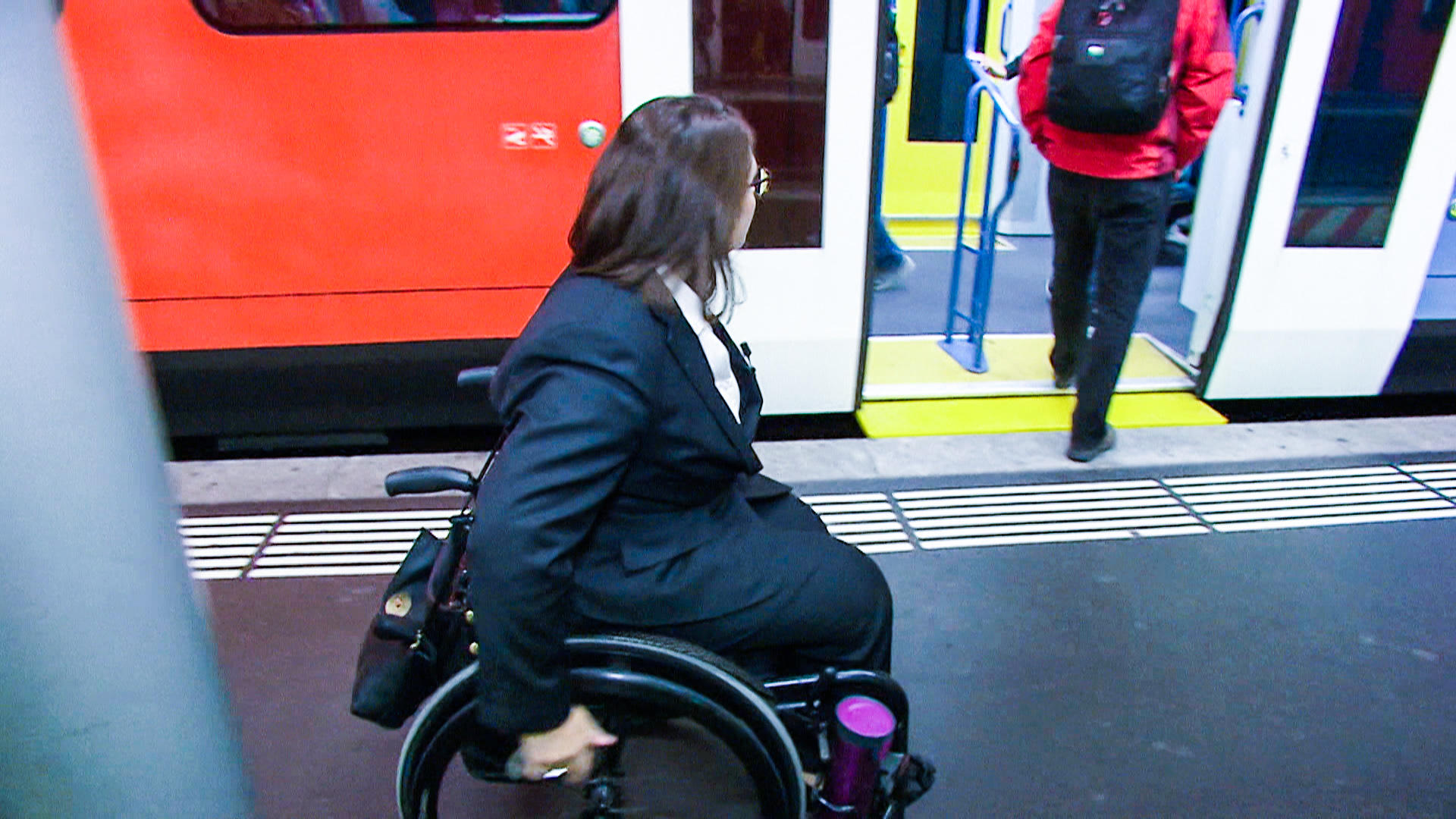
Disabled groups challenge accessibility of new Swiss trains

A legal challenge by groups representing Swiss wheelchair users is likely to put a spanner in the rollout of new double-decker trains by Swiss Federal Railways. Access is not autonomous, a disabled group says.
The news that the association Inclusion HandicapExternal link has filed a legal complaint against Swiss Federal Railways was reported on Monday by the ‘10vor10’ current affairs programme of Swiss public television, SRF.
According to its report, disabled representatives attending a demonstration of the new trains in December 2017 discovered that the ramps to get on and off the train were too steep, and wheelchair users could not access without some assistance.
+ The challenges for Switzerland’s punctual but pressured rail network
+ How Swiss trains are experimenting with new driverless technology
This runs counter to a law in place since 2004 stipulating that disabled passengers can use public transport independently, without the help of railway staff, Inclusion Handicap says.
The legal challenge, which will be decided upon by the Federal Administrative Court in St Gallen, demands that six new trains already built be adapted, and that the changes be also applied to the 56 trains under construction.
Swiss Federal Railways are reluctant to commit to the adaptations, which could cost millions of francs, the report says.
In a written statement, the national railway operator was apologetic but reluctant to comment until the court case is decided. They were under the impression that the construction complied with existing disability laws.
The trains, designed by Bombardier, are designed to increase capacity on major routes including Zurich-Bern and Lausanne-Geneva, and should be in service for the next 40 years.

More
Making Swiss trains handicapped accessible proves a challenge

In compliance with the JTI standards
More: SWI swissinfo.ch certified by the Journalism Trust Initiative





























You can find an overview of ongoing debates with our journalists here . Please join us!
If you want to start a conversation about a topic raised in this article or want to report factual errors, email us at english@swissinfo.ch.